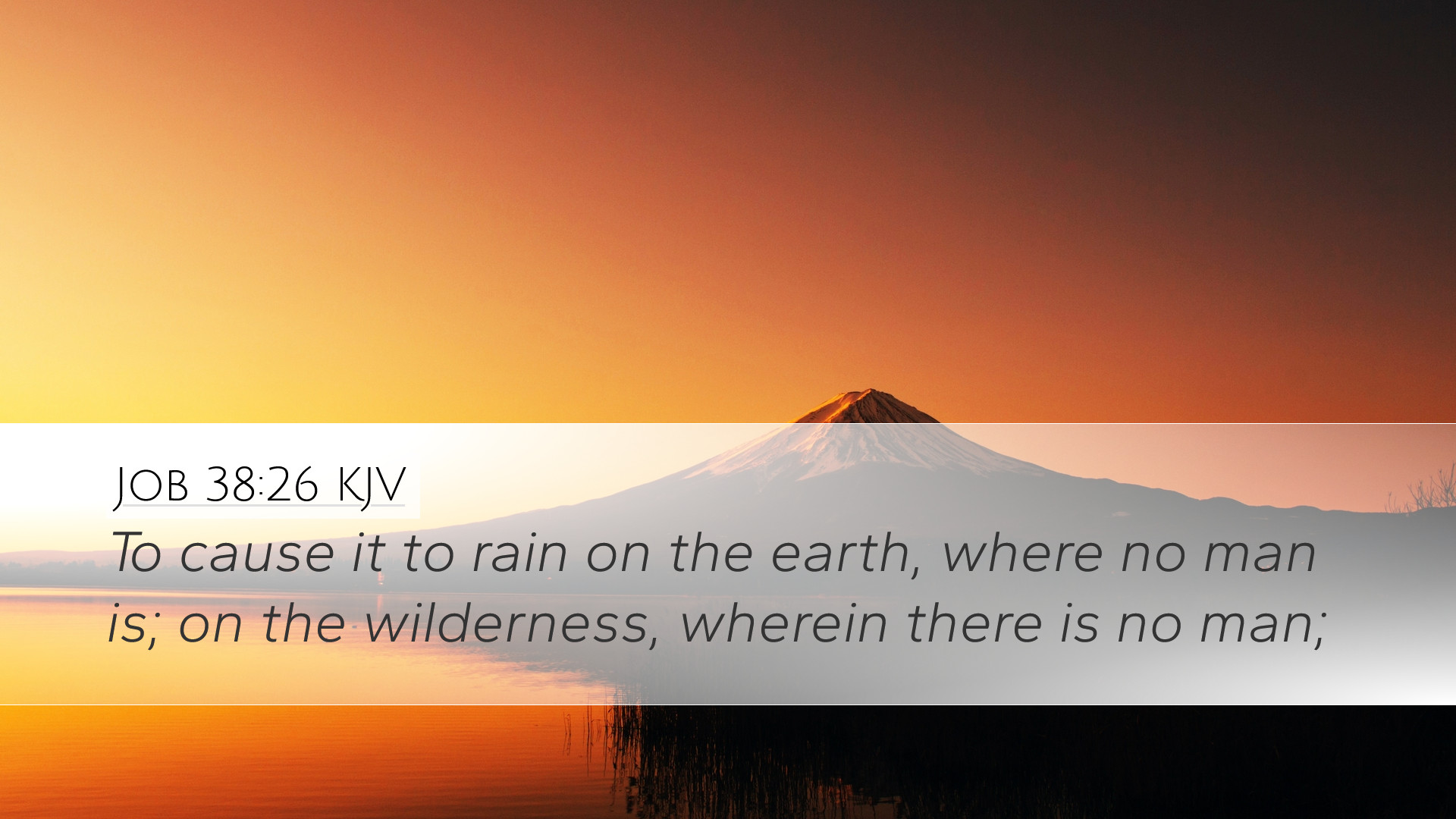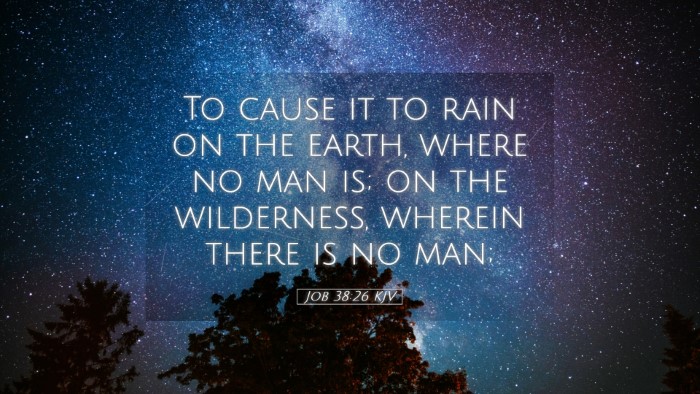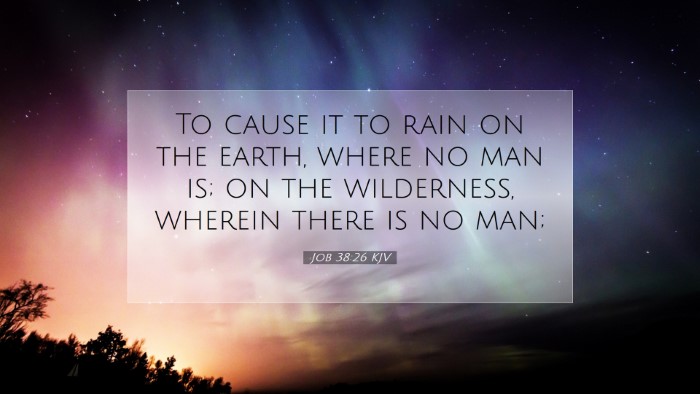Commentary on Job 38:26
Job 38:26 (KJV): “To cause it to rain on the earth, where no man is; on the wilderness, wherein there is no man.”
Introduction
Job 38 stands as a pivotal chapter in the Book of Job, marking the climax of God's response to Job's lamentation and questioning of divine justice. Here, God speaks from the whirlwind, offering profound insights into His sovereignty, wisdom, and the intricate order of creation. This particular verse, Job 38:26, encapsulates the themes of God's providence over nature, His care for creation, and the notably spiritual implications of divine action in seemingly barren and uninhabited places.
Contextual Overview
The Book of Job is a profound exploration of suffering, justice, and divine inscrutability. Throughout the preceding chapters, Job laments his plight, questioning the reason behind his unmerited suffering. God's response begins in Job 38, where He poses a series of questions that awaken Job to the reality of divine wisdom and power that governs the universe.
Exegesis of Job 38:26
In this verse, God addresses the concept of rainfall, specifically calling attention to the act of causing rain to fall in places devoid of human habitation. This portion reveals several theological truths and insights drawn from respected commentaries.
The Sovereignty of God
Matthew Henry highlights that this verse signifies God's control over the natural world. Just as He directs the rain, a vital element for sustenance, He governs all aspects of creation. The implication here is that God acts not solely in response to human needs but according to His own wisdom and purposes. God's sovereignty is not limited by human presence or absence.
- “He sends rain where no man inhabits, indicating His goodness and providence that extends beyond human concerns.”
- Henry emphasizes the universality of God's providence, as He nurtures life in the wilderness, a place often viewed as a metaphor for desolation and neglect.
The Purpose of Creation
Adam Clarke comments on the intention behind God's provision for the wilderness, suggesting that such actions are a testament to God's care for all His creation, not just humankind.
- “Even the wilderness serves a purpose in God’s design, showcasing His glory and power.”
- Clarke notes that this verse challenges the reader to recognize the inherent value and purpose of creation, affirming that every landscape has significance in God’s plan.”
Theological Implications
This verse encourages a broader understanding of divine providence. Bringing rain to uninhabited places implies that God's acts of grace and mercy are not always visible through human perspective.
- Both Barnes and Clarke suggest that this illustrates God’s benevolence toward all creation, emphasizing an ecological theology which sees God’s hand in nature's cycles.
- The reference to wilderness can serve as a metaphor for spiritual barrenness where God still provides, suggesting that even in desolation, His sustenance is evident.
Practical Applications
For pastors, students, and theologians, Job 38:26 offers rich ground for reflection on divine providence and the necessity of recognizing God’s sovereignty in everyday life.
- Encouraging Awareness of God’s Work: Just as God acts autonomously in nature, believers are called to trust in God’s work behind the scenes. This can inspire faith amidst personal trials or situations that appear hopeless.
- Reminding of Creation’s Value: The wilderness, often overlooked, serves as a reminder of God's intricate design. Ecclesiastical teaching can highlight the dignity of all creation, urging respect and stewardship of the environment.
- Exploring God’s Unseen Blessings: This verse prompts discussions on how God is at work even where human acknowledgment is lacking, inviting believers to look for God’s presence in their lives beyond their immediate circumstances.
Conclusion
Job 38:26 serves as an incredibly dense theological statement regarding God's authority and care for creation. It invites readers into a deeper appreciation of God’s providential work that often unfolds in silence and solitude. By engaging with the insights of commentators such as Matthew Henry, Albert Barnes, and Adam Clarke, we are encouraged to expand our understanding of divine sovereignty and engage in a more profound relationship with God, recognizing His hand at work in all aspects of creation.


